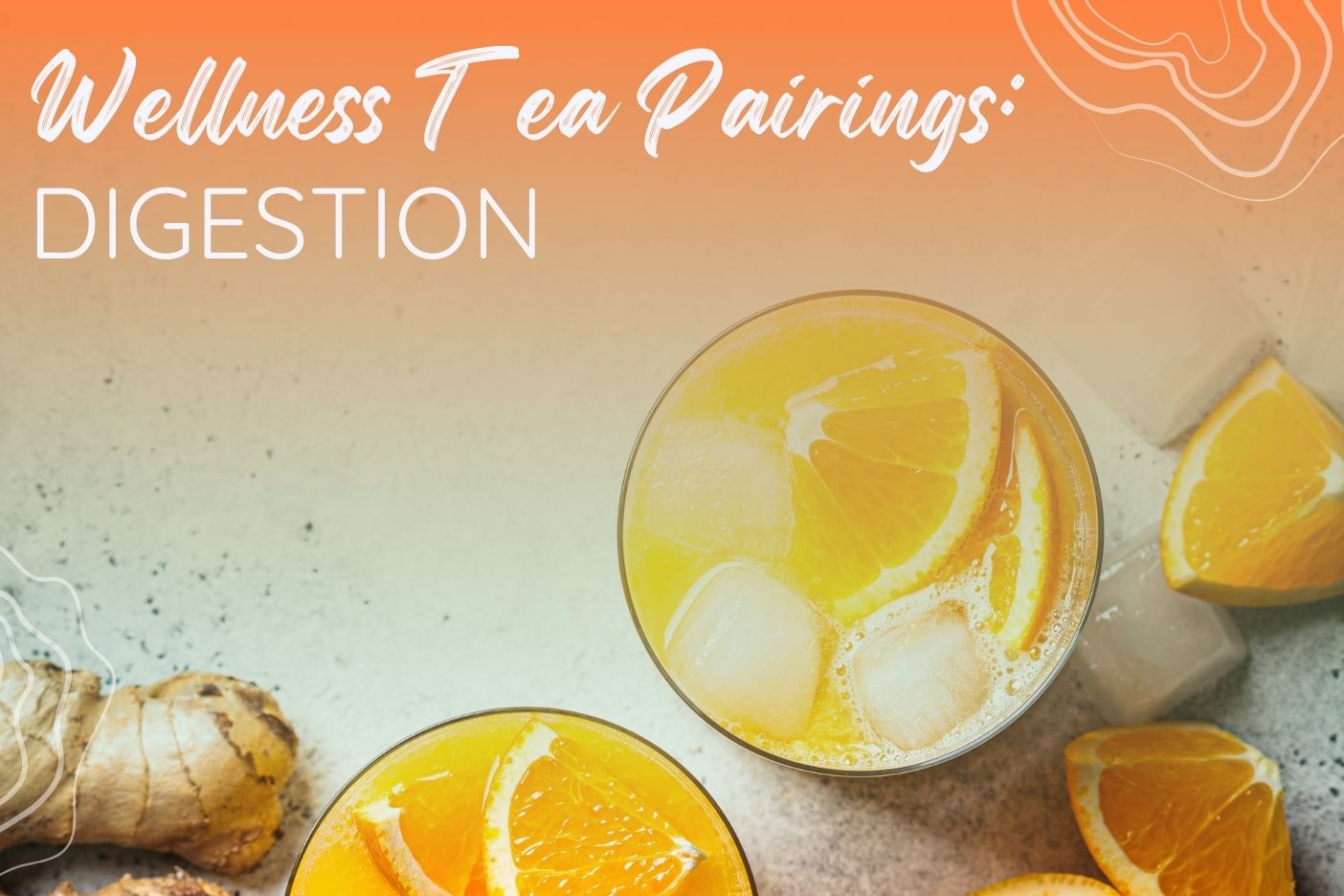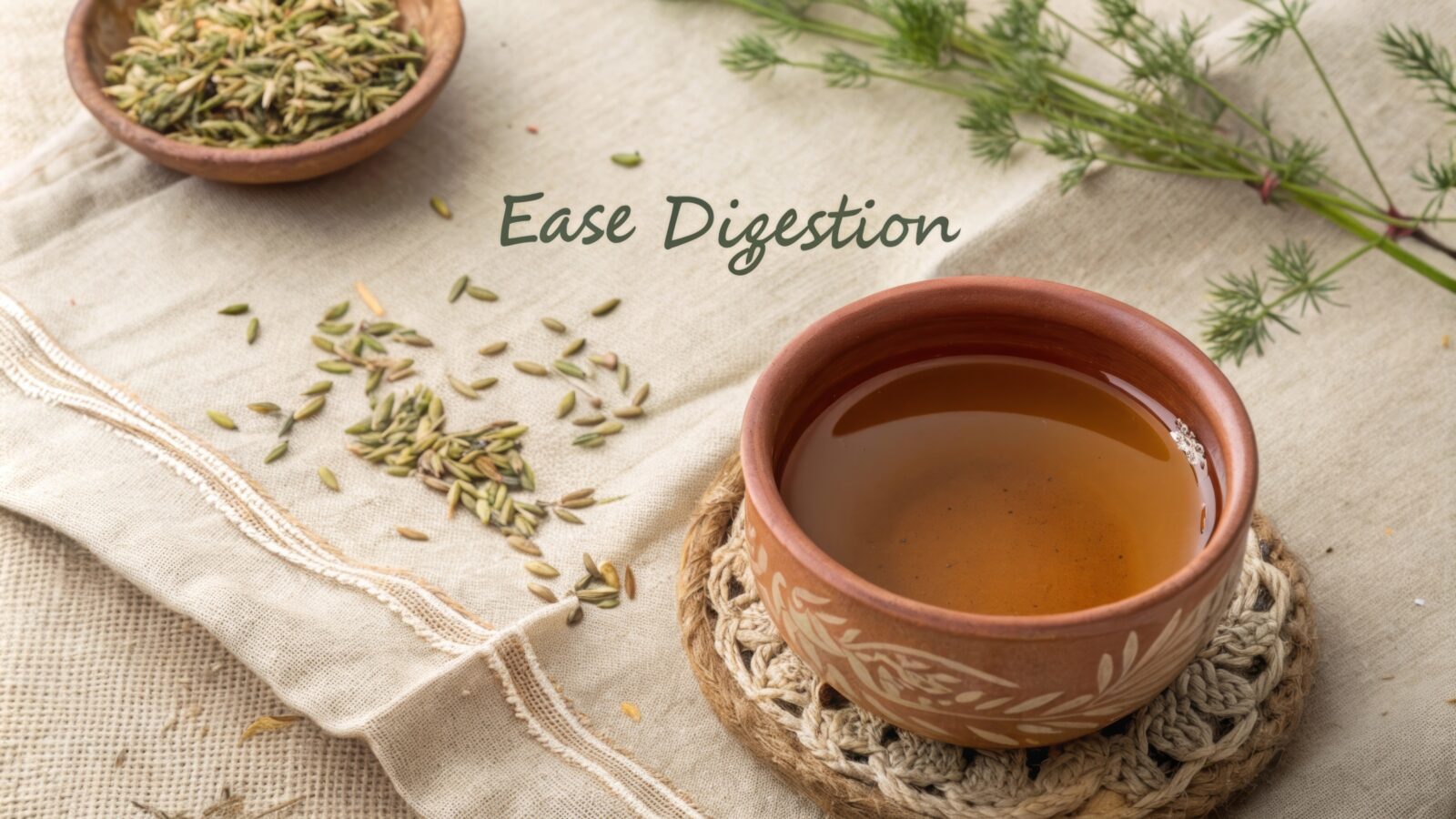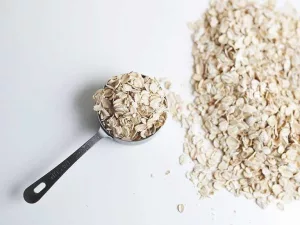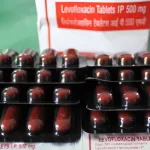Teas such as peppermint and ginger, among others, might help ease digestive complaints like bloating and inflammation. Keep in mind that some ingredients can interact with medications you already take.
People have used tea for digestive troubles and other ailments for thousands of years.
Numerous herbal teas have demonstrated potential to ease nausea, constipation, indigestion, and more. Luckily, most are easy to find and simple to prepare.
Below are 9 teas that could support your digestion.
1. Peppermint
Peppermint, a fragrant herb from the Mentha piperita plant, is prized for its cool taste and ability to calm an upset stomach.
Both animal and human research indicate that menthol, a constituent of peppermint, can improve some digestive symptoms (1, 2, 3, 4).
Peppermint oil is often used to help irritable bowel syndrome (IBS), a disorder of the large intestine that can cause abdominal pain, bloating, gas, and other troublesome symptoms (5).
In a 4-week trial of 57 IBS patients, 75% of those taking peppermint oil capsules twice daily reported symptom improvement versus 38% in the placebo group (6).
Peppermint tea may offer effects similar to the oil, although direct studies of the tea’s impact on human digestion are limited (1).
To brew peppermint tea, steep 7–10 fresh peppermint leaves or 1 peppermint tea bag in 1 cup (250 ml) of boiling water for 10 minutes, then strain and drink.
Summary Peppermint may reduce IBS and other digestive symptoms, though research specifically on peppermint tea is sparse.
2. Ginger
Ginger (Zingiber officinale) is a flowering plant native to Asia whose rhizome (the underground stem) is widely used as a spice and remedy.
Gingerols and shogaols, active compounds in ginger, can enhance stomach contractions and emptying, potentially aiding nausea, cramps, bloating, gas, and indigestion (7, 8, 9).
A large review reported that 1.5 grams of ginger per day reduced nausea and vomiting from pregnancy, chemotherapy, and motion sickness (9).
Another small trial in 11 people with indigestion found supplements containing 1.2 grams of ginger shortened gastric emptying time by about 4 minutes compared with placebo (10).
Comparative data between ginger tea and ginger supplements are limited, but the tea is likely to offer similar advantages. For more on this, see ginger for headache, which also discusses ginger’s effects.

To make ginger tea, simmer 2 tablespoons (28 grams) of sliced ginger root in 2 cups (500 ml) of water for 10–20 minutes, then strain and drink. Alternatively, steep a ginger tea bag in 1 cup (250 ml) of boiling water for a few minutes.
Summary Ginger can reduce nausea and vomiting and may ease other digestive complaints. Ginger tea can be prepared from fresh root or tea bags.
3. Gentian root
Gentian root is derived from plants in the Gentianaceae family, which are found across the globe.
Various gentian species have traditionally been used to boost appetite and treat stomach problems for centuries (11, 12).
Gentian’s actions are largely credited to bitter iridoid compounds that can raise production of digestive enzymes and stomach acids (13).
One study in 38 healthy adults showed that drinking water infused with gentian root increased blood flow to the digestive organs, which may support digestion (14).
You can buy dried gentian root at health food stores or online. To prepare gentian tea, steep 1/2 teaspoon (2 grams) of dried root in 1 cup (250 ml) of boiling water for 5 minutes, then strain. Drink it before meals to aid digestion.
Summary Gentian root’s bitter constituents may stimulate digestive processes when consumed prior to meals.
4. Fennel
Fennel (Foeniculum vulgare) is an herb with a licorice-like flavor that can be eaten raw or cooked.

Animal research suggests fennel can help prevent stomach ulcers, likely due to antioxidant compounds that combat damage related to ulcer formation (15, 16).
Fennel may also ease constipation and encourage bowel movements, although the exact mechanism is not fully understood (15).
In a trial of 86 older adults with constipation, participants who drank a fennel-based tea daily for 28 days had significantly more daily bowel movements than those given a placebo (17).
To make fennel tea, pour 1 cup (250 ml) of boiling water over 1 teaspoon (4 grams) of fennel seeds. Let steep 5–10 minutes, then strain and drink. Freshly grated fennel or tea bags are also options.
Summary Fennel has shown ulcer-preventing effects in animals and may help relieve chronic constipation by promoting bowel movements.
5. Angelica root
Angelica is a flowering plant found worldwide with an earthy, slightly celery-like flavor.
All parts of the plant have been used traditionally, but angelica root in particular may benefit digestion.
Animal studies indicate a polysaccharide in angelica root can protect the stomach by increasing healthy cells and blood vessels in the digestive tract (18, 19).
Because of these properties, angelica root might counteract intestinal damage from oxidative stress in conditions like ulcerative colitis (20).
Additionally, a test-tube study on human intestinal cells found angelica root stimulated secretion of digestive acids, suggesting it could help relieve constipation (21).
While these findings hint that angelica root tea may support a healthy gut, human trials are lacking.
To brew angelica root tea, add 1 tablespoon (14 grams) of fresh or dried root to 1 cup (250 ml) of boiling water. Steep 5–10 minutes, then strain and drink.
Summary Animal and lab studies suggest angelica root protects against intestinal damage and promotes digestive acid secretion.
6. Dandelion
Dandelions (Taraxacum) are common yellow-flowered weeds found worldwide, even in many lawns.
Animal work shows dandelion extracts contain compounds that may enhance digestion by increasing muscle contractions and aiding the passage of food from the stomach into the small intestine (22, 23).
A rat study also found dandelion extract helped protect against ulcers by reducing inflammation and lowering stomach acid production (24).
Thus, dandelion tea may support healthy digestion, though human research remains limited.
To prepare dandelion tea, combine 2 cups of dandelion flowers with 4 cups of water in a saucepan. Bring to a boil, remove from heat, and steep 5–10 minutes. Strain through a sieve before drinking.
Summary Dandelion extract has been shown to stimulate digestion and guard against ulcers in animals, but human studies are needed.
7. Senna
Senna comes from flowering plants in the Cassia genus.
It contains sennosides, compounds that are metabolized in the colon and act on smooth muscle to trigger contractions and bowel movements (25).
Research shows senna is an effective laxative in children and adults with constipation from various causes (26, 27, 28).
In one trial of 60 cancer patients, most of whom were on opioids known to cause constipation, over 60% of those taking sennosides for 5–12 days had a bowel movement on more than half of those days (28).
Senna tea may be a convenient way to relieve constipation, but it’s best used occasionally to avoid diarrhea or dependency.
To make senna tea, steep 1 teaspoon (4 grams) of dried senna leaves in 1 cup (250 ml) of boiling water for 5–10 minutes, then strain. Senna tea bags are also widely available online and in health food stores (online).
Summary Senna is a commonly used laxative; its sennosides help stimulate colon contractions and regular bowel movements.
8. Marshmallow root
Marshmallow root is taken from the flowering plant Althaea officinalis.
Polysaccharides in marshmallow root, like mucilage, can encourage mucus-producing cells along the digestive tract (29, 30, 31).
By increasing mucus and coating the throat and stomach, marshmallow root may also have antioxidant effects that lower histamine (a mediator of inflammation), potentially protecting against ulcers.
An animal study found marshmallow root extract was effective at preventing NSAID-induced stomach ulcers (32).
Although these findings are promising, more work is required to determine the benefits of marshmallow root tea specifically.
To brew marshmallow root tea, steep 1 tablespoon (14 grams) of dried root in 1 cup (250 ml) of boiling water for 5–10 minutes, then strain and drink.
Summary Compounds in marshmallow root may boost mucus production and help coat the digestive tract, which could guard against stomach ulcers.
9. Black tea
Black tea is made from the Camellia sinensis plant and is often blended into popular varieties like English Breakfast and Earl Grey.
It contains beneficial compounds such as thearubigins, which may ease indigestion, and theaflavins, antioxidants that could protect against stomach ulcers (33, 34, 35).
One mouse study found that three days of treatment with black tea and theaflavins healed 78–81% of stomach ulcers by suppressing inflammatory pathways (36).
Another animal study reported black tea extract improved delayed gastric emptying and associated indigestion caused by a medication (34).
Thus, drinking black tea may help digestion and guard against ulcers, although additional human research is warranted.
To make black tea, steep a tea bag in 1 cup (250 ml) of boiling water for 5–10 minutes, or use loose leaves and strain after steeping.
Summary Black tea may protect against stomach ulcers and indigestion thanks to antioxidant compounds present in the tea.
Safety precautions
Although herbal teas are generally safe for many people, exercise caution when introducing a new tea into your routine.
There’s limited information about the safety of certain teas for children, and for pregnant or breastfeeding women (37, 38).
Additionally, some herbs can interact with medications, and excessive consumption of herbal teas may cause side effects like diarrhea, nausea, or vomiting (39).
If you plan to try a new herbal tea for digestion, start with a small amount and monitor how you feel. Consult your healthcare provider first if you take medications or have any medical conditions.
Summary While most teas are safe for many people, certain herbs may be unsuitable for children, pregnant women, or those on specific medications.
The bottom line
Herbal teas can offer various digestive benefits, including relief from constipation, ulcers, and indigestion.
Peppermint, ginger, and marshmallow root are a few examples of teas that may support digestive health.
If you decide to incorporate a particular tea to aid digestion, check the recommended brewing amounts and how frequently to drink it.

























Leave a Reply
You must be logged in to post a comment.